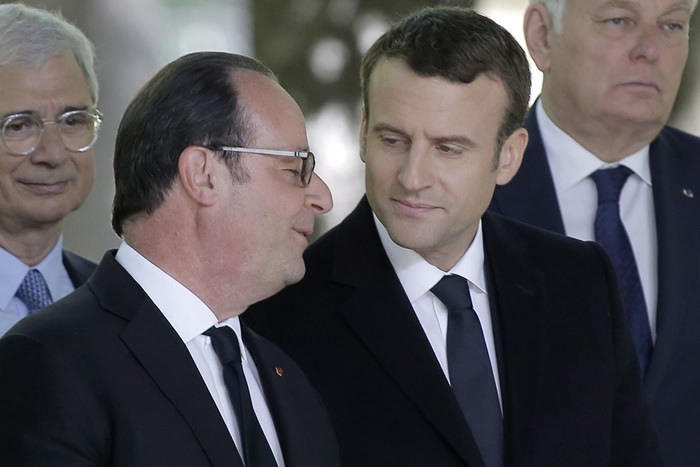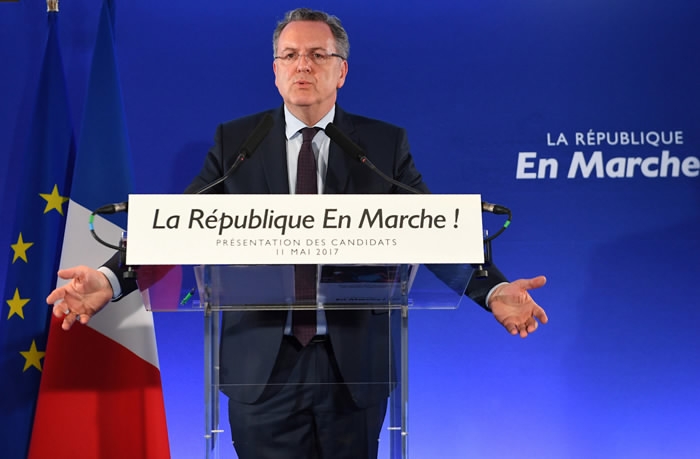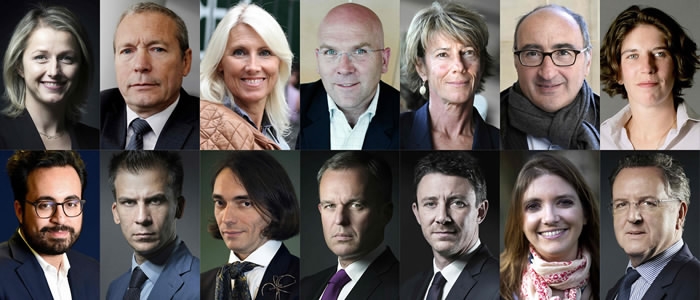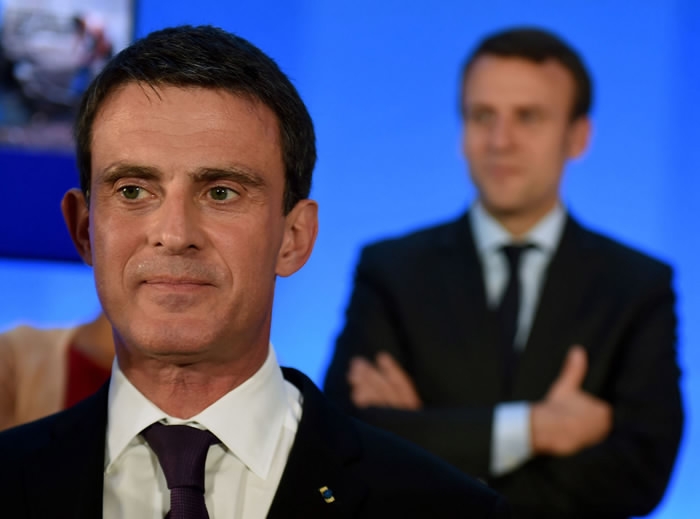Emmanuel Macron's start-up political party on Thursday announced a list of 428 candidates for French parliamentary elections in June, just over half of them from civil society and the rest are women, fulfilling promises from his presidential campaign.
The partial list – his Republic on the Move Party had said previously that it would stand in every one of the National Assembly's 577 seats – represented Macron's first stab at creating a parliamentary power base that will help him push forward with reforms once in office.

French President Francois Hollande (L) and President-elect Emmanuel Macron (R) attend the Day of Remembrance of Slavery at the Jardin du Luxembourg in Paris on May 10. /VCG Photo
Party Secretary General Richard Ferrand said the remaining number of candidates were a matter of further discussion and that the party was leaving the door open to politicians of other political stripes to come over to Macron's side.
"We want to leave them time until Wednesday to say so," he told a news conference.
"We want to build a majority for change and therefore obtain for Republic on the Move an absolute majority in the National Assembly," Ferrand said, adding that they had combed through more than 19,000 applications.

Richard Ferrand, secretary general of the Republic on the Move Party, attends a press conference in Paris on May 11 to speak about candidates for upcoming legislative elections. /VCG Photo
Macron's election victory over the National Front's Marine Le Pen on Sunday has destroyed the dominance of the center-left and center-right parties which have ruled over French politics for nearly 60 years.
Newcomers
Macron, 39, had promised that half would be newcomers, meaning a diverse range of figures from business, public service, activist groups and academia will get a chance to seek elected office.
"The promise of renewal is fulfilled," Ferrand said, adding that the average age of the candidates was 46 – compared with 60 in the current National Assembly.

Some of the Republic on the Move Party's candidates for French parliamentary elections in June. /VCG Photo
On the tricky position of whether to accept former Socialist Prime Minister Manuel Valls, Ferrand said the party had not selected him, but would not field a rival against him in his south of Paris seat.
Valls, a friend-turned-foe of Macron's from their time in government from 2014 to 2016, had asked to be selected on Tuesday, but said he welcomed news that Macron's movement would not oppose him.

May 20, 2016: Then French Prime Minister Manuel Valls (L) stands near then French Economy and Industry Minister Emmanuel Macron. /VCG Photo
Other successful bids came from a woman fighter pilot who will run in eastern France, and a man born in Rwanda who was adopted in France at the age of four and will contest a seat in Brittany.
The nomination process is a balancing act for Macron and represents major risks for his presidency, which will begin formally on Sunday when he takes over from Socialist Francois Hollande.
If he doesn't secure a parliamentary majority, Macron will find it hard to push through his planned reforms of the labor market, pensions, unemployment benefits or education.
8226km
Related stories:










